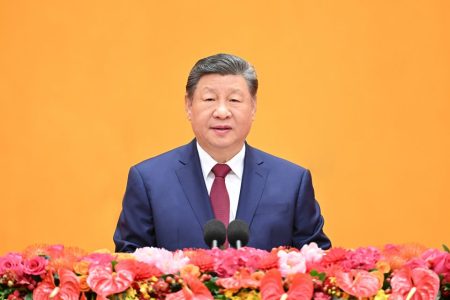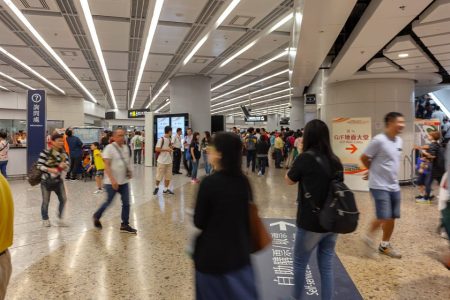Macao’s casino industry has long been the bread and butter of the local economy, accounting for roughly 80 percent of the government’s tax revenue and employing nearly 19 percent of the workforce last year. While the sector has put Macao on the map and generated exorbitant wealth, its dominance has stymied balanced growth in the city, making it vulnerable to uncertainties such as the Covid-19 pandemic and the economic cycle of mainland China – Macao’s biggest source of punters by far.
Keen to secure the city’s sustainable, long-term development, the SAR and central governments have implemented various measures in recent years to facilitate economic diversification. One major initiative is the opening up of Hengqin, an island district of Zhuhai situated to the west of Macao that is being earmarked for SAR’s economic expansion across four emerging industries – life sciences, finance, event production and technology.
[See more: This is how to get to Hengqin from Macao]
In 2009, the central government set in motion plans to develop Hengqin, transforming the sleepy island – roughly three times the size of Macao – into an emerging business hub. To foster Macao and Hengqin’s coordinated development, Macao residents and businesses have also been encouraged to move to the mainland special economic zone in recent years.
Business ties between the two territories have certainly been growing, with data revealing that there were 7,103 Macao-backed businesses stationed in Hengqin in May, up by 13.4 percent year-on-year.
These Macao firms span a wide range of industries, including food and beverages, entertainment, information technology and pharmaceuticals. Macao News spoke with three of them to find out the perks and challenges of doing business in Hengqin.
Red Fort (紅堡)
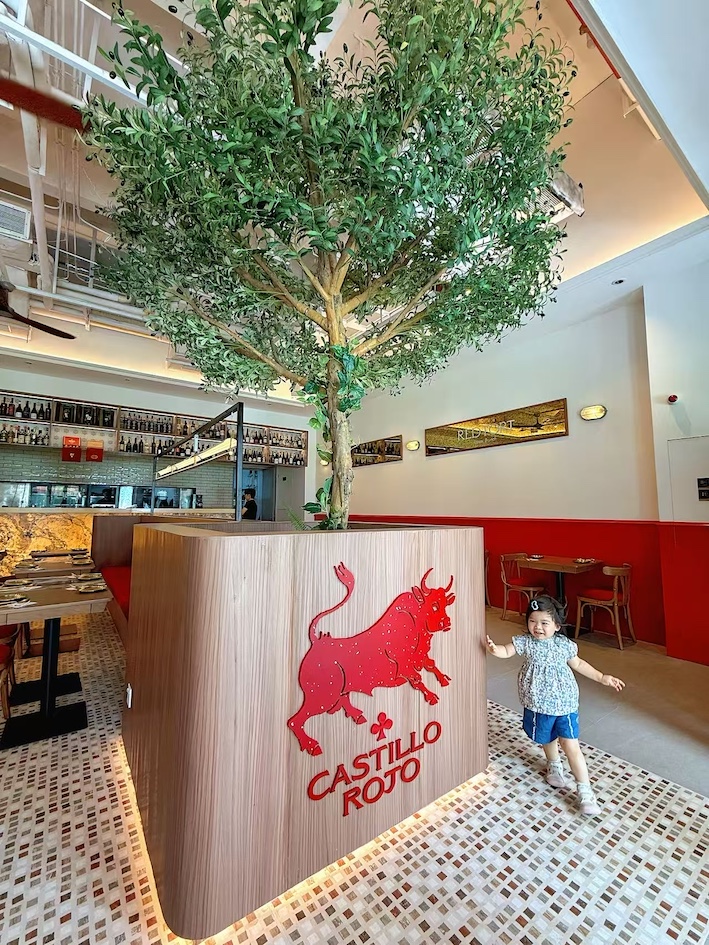
Located in Hengqin Huafa Mall, Red Fort is a Spanish restaurant owned by Macao resident Olivia Gomes and her husband Chan Wai Long, who are both in their thirties. Despite their youth, the pair are no strangers to the restaurant business, as they also run two local eateries located at Taipa’s Ocean Gardens – Slash Macau, a Macanese-inspired cha chaan teng, and Done燉, a restaurant that specialises in stewed dishes, soup and herbal tea.
With the opening of Red Fort in July, the couple hope to test out the Hengqin market, while establishing a new brand that will further expand their restaurant enterprise.
For Gomes, who is of Macanese descent, the venture also serves as an opportunity to pay tribute to Spanish tapas and dishes such as seafood paella and calamari, which she enjoyed while growing up on account of her grandfather and other family members having lived in the country. “I really like Spanish cuisine and ate it as a child,” she tells Macao News.
In establishing Red Fort, Chan tells Macao News that he initially scouted locations across the Greater Bay Area (GBA), including Guangzhou, Shenzhen and Shunde before finally settling on Hengqin due to its proximity to home.
“We can reach [Hengqin] in half an hour [by the light rail],” Chan says. “Our team is still able to keep on top of the whole situation.”
[See more: ‘How was it?’ Angsana Zhuhai Hengqin]
Despite their rich experience in the dining business, the pair admit that setting a restaurant in Hengqin has required a fair amount of adaptation, with Chan describing it as “quite difficult.”
“The market situation, the culture and everything is different here,” the restaurateur points out. For instance, Chan mentions a clash between the mainland’s fast-paced culture of ready-made meals and his restaurant’s insistence on cooking freshly made dishes, which has resulted in Red Fort being criticised for its slow delivery of orders.
Online promotion of the restaurant has also required a shift in strategy. “In Macao, you only need to post on Facebook and Instagram,” Chan says. “But, when we get to the mainland, we have to make posts for Gaoda, Baidu, Xiao Hongshu, Douyin, Dianping and Meituan.”
“Advertising is really important to us because there are currently not a lot of people in Hengqin,” the business owner acknowledges. “But during the summer holiday, a lot of people will actually come and try out our restaurant, especially families.”
Although Red Fort is still collecting data as part of its ongoing trial run, Chan estimates that around 60 percent of visitors are Macao residents, while the remaining 40 percent consist of mainland Chinese.
The couple hope to continue representing Macao by opening up a Red Fort branch in every GBA city over the coming years. However, their most important task for now is to ensure that their inaugural Hengqin restaurant can get off the ground. If Red Fort can achieve this, it will truly live up to its name – a reference to Alhambra, a castle in Granada, Spain, whose red colour, Gomes says, represents passion and vitality.
Macau-Union Pharmaceutical Limited (澳邦藥廠有限公司)
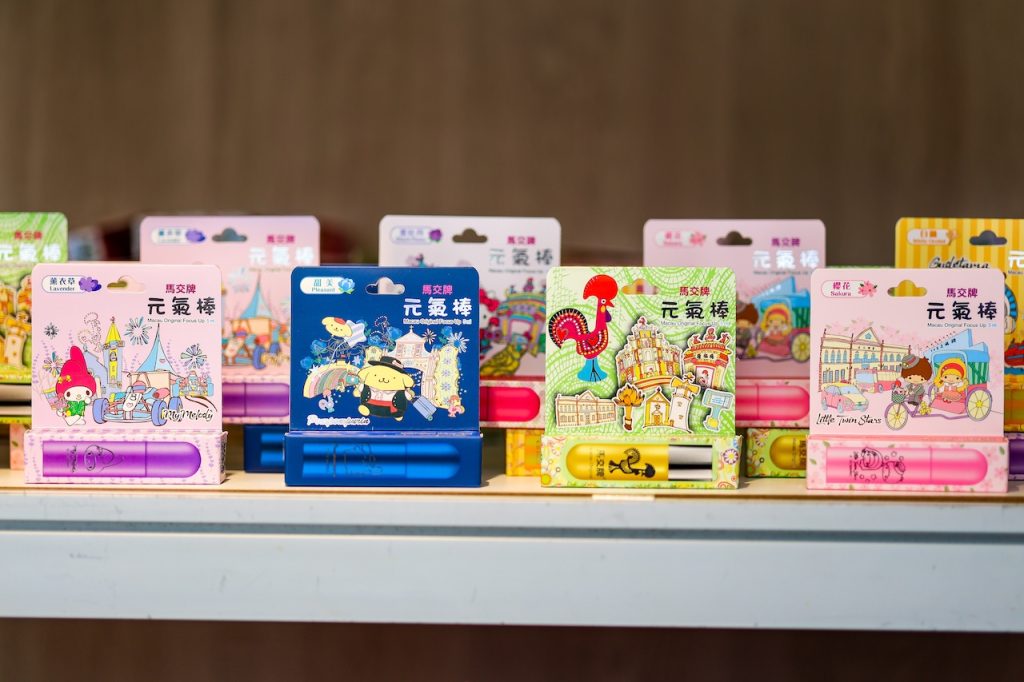
Founded in 2008, Macau-Union Pharmaceutical Limited (MUPL) is a Macao-based company that has around 600 medicinal products to its name, including ointments, essential oils, balms and creams.
Originally, MUPL was mainly focused on producing pharmaceutical products on behalf of other brands, although it began to shift towards developing its own Macao brand in 2015, after attending exhibitions and trade shows, and seeing that its partners and consumers were highly receptive to the idea.
“We quickly established [the brand] Macau Original (馬交牌)” says Lao Tai Hang, the technical director of MUPL. He adds that the firm “launched and sold products under a Macao label and a Macao-made trademark” in 2016, using the Rooster of Barcelos as its logo to convey Macao’s status as “a place of intermingling between Chinese and Portuguese culture” and “the diligence of the people in Macao.”
Currently, Macau Original’s offerings include around 20 products that are all manufactured in MUPL’s factory in Areia Preta, which houses around 22 staff members.
While the bulk of MUPL’s operations remain in Macao, the firm also established a presence in Hengqin in 2017 in order to take advantage of the island’s strengths.
“I believe we were among the first batch of Macao businesses to enter Hengqin,” Lao recalls, adding that “Hengqin New Area” – as the island was called at the time – was still four years away from being transformed into the present economic diversification platform known as the “In-Depth Guangdong-Macao Co-operation Zone.”
Hoping to leverage the mainland’s superior R&D capabilities and talents, MUPL established an office in Hengqin’s Traditional Chinese Medicine Science and Technology Industrial Park, where it engaged in the development of formulas and the secondary development of dosage forms (the physical form in which a drug is produced and administered to a patient) between 2017 and 2023.
A transfer in the industrial park’s management from Macao-appointed officials to the mainland-based Taiping Capital firm between late 2023 and early 2024 resulted in what Lao describes as a “shift” in direction. As a result, MUPL divested itself from R&D in Hengqin, with its office on the island – currently staffed by around two people – now primarily focused on serving as a “connector” between mainland China and Macao.
[See more: Hengqin has released its 2025 to 2029 development plan]
“If we have an office in Hengqin, it allows for more direct contact with some mainland companies because sometimes these firms aren’t able to come to Macao or it’s difficult for them to come,” Lao points out. “In Hengqin, we take on the role as a bridge [between the two places] by engaging in business interactions or consultation work. There are actually a lot of mainland companies that want to learn about Hengqin or really want to learn about certain policies in Macao.”
Presently, MUPL doesn’t have any intentions of expanding its manufacturing capabilities to Hengqin, as Lao says it doesn’t align with the company’s strategy to expand overseas.
“Products manufactured in Hengqin remain mainland manufactured and that doesn’t actually help our exports enter into the overseas market,” he says. By contrast, the technical director highlights Macao’s advantages as an international free port and tariff-free zone.
Despite this, the firm had the opportunity to take part in a test project, launching the first Hengqin-produced, Macao-supervised pharmaceutical product, the Macau Original Far Reaching Medicated Oil, in 2023, which was manufactured by Hengqin’s Guangdong-Macao Pharmaceutical Co.
Lao notes that the project demonstrated the feasibility of such a model, but after various assessments and testing, the company found that Macao was ultimately more suitable for developing their products from a business standpoint.
“In the past, we had a lot of investments in Hengqin, but we slowly found that MUPL’s development wasn’t simply limited to Hengqin,” Lao explains. Nonetheless, the MUPL technical director considers Hengqin to be a “very important strategic component” that the company will “continuously maintain.”
Indeed, Hengqin’s role as a “connector” with the mainland will serve the company well, as Lao also makes it clear that MUPL intends to further expand its catalogue of products in the rest of the country.
Zence Object (茶甡)
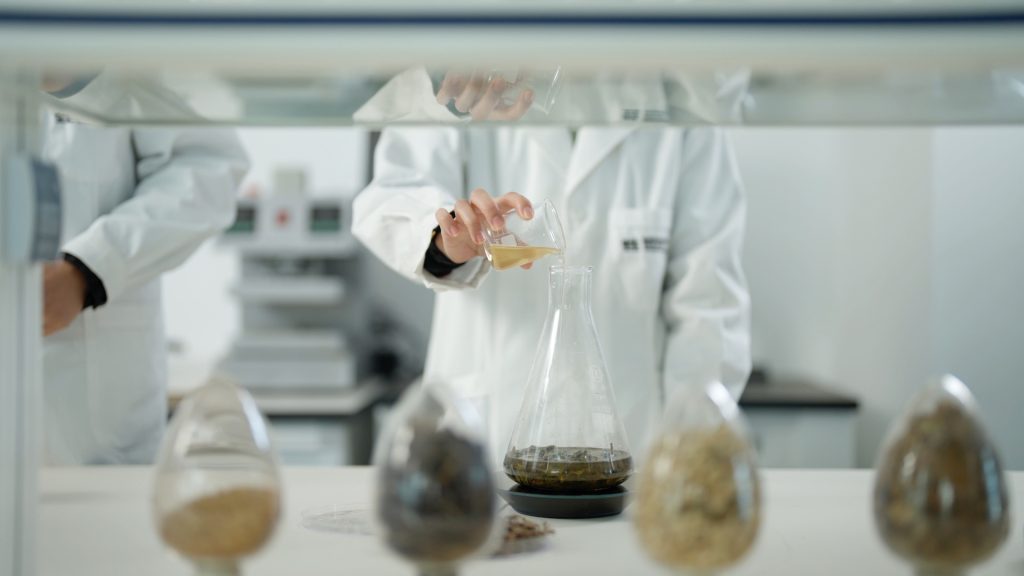
Macao start-up Zence Object is attempting to create a culture of sustainability by turning leftover tea leaves into a range of practical products such as packaging and building material, consumer goods and decorative panels.
The man behind this green solutions firm is 34-year old Macao resident Calvin Sio Kai Tong, who was inspired to upcycle tea leaves in part due to China’s rapidly developing milk tea market and his own experience of seeing tea leaves being wastefully disposed of in his relatives’ milk tea stores. “At night, there would be a lot of leftover tea leaves, so I thought, why not try using them?” he says.
The result was the establishment of Zence Object in 2018, which Sio says began life as a small workshop in Macao. Zence Object has since expanded greatly and is currently mass producing a wood substitute (tea board) called PrZence, as well as a plastic substitute (tea plastic) called EnZence.
Thanks to a US$2.5 million cash injection from Alibaba and Gobi Partners in 2023, Zence Object has been able to greatly boost its physical presence across the GBA, shifting its R&D headquarters from Macao to Hengqin in 2023, as well as opening up sales centre in Shenzhen in 2021 and a factory in Dongguan in 2024 .
On being based in Hengqin, Sio says the move aligns with Macao’s economic diversification and “makes our work considerably more convenient.” The entrepreneur points to the various measures that have been introduced to benefit Macao-backed businesses, including a monthly 4,000 yuan employment subsidy scheme for eligible Macao residents. Other benefits include subsidies for rent, renovation, as well as one-off cash rewards.
[See more: Macao company Zence Object gets fresh funding for overseas expansion]
Sio, however, warns that it takes “a long time” to adjust to the multitude of policies that are in place in Hengqin. “Oftentimes, many Macao companies will come to Hengqin and they don’t really have an understanding of the policies in mainland China because there are too many,” he says. “They pour over which policies to choose or which ones to follow. This takes a long time to get used to.”
Still, the benefits of being part of the GBA are immeasurable. “We entered [the GBA] at around the right time,” Sio says. “If we had joined the GBA several years beforehand, it wouldn’t have been much help.” Indeed, the rapid development of the region’s transport infrastructure in recent years has resulted in the formation of a so-called “one-hour living circle” that allows entrepreneurs such as Sio to rapidly travel between GBA cities and conduct business seamlessly.
Meanwhile, the Macao local notes that he can leverage the region’s broad talent pool and take advantage of the unique strengths of each GBA city. Shenzhen, for example, is known for being a technological hub, whereas Dongguan is a major manufacturing hub that is often referred to as “the world’s factory.”
Currently, Zence Object is looking to expand overseas into the Southeast Asian market, a task that has been greatly helped by a new round of funding from AB Builders Group Limited and Gobi Partners earlier this year. As the company broadens its reach, Sio remains adamant that its objectives will remain unchanged. “We genuinely hope to help the world reduce carbon emissions,” he says.





